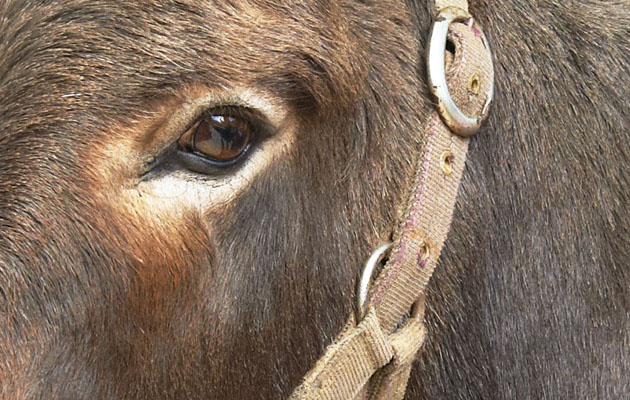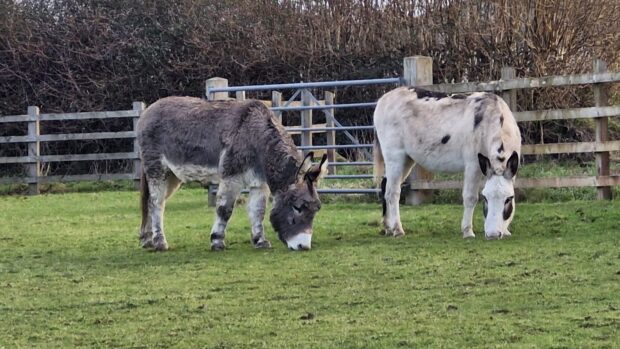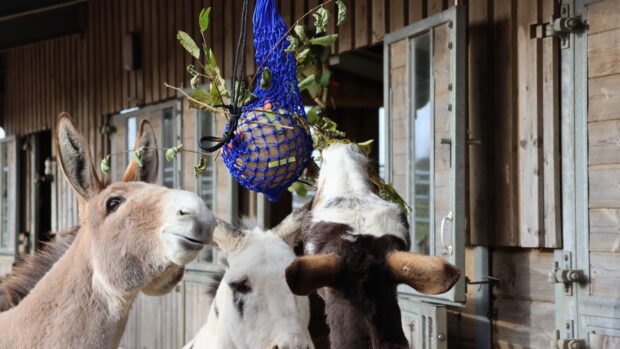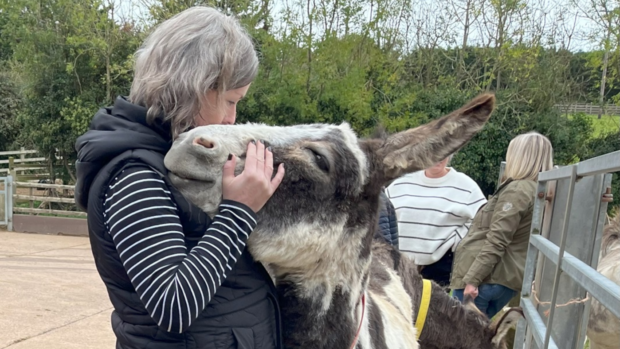The ‘horrific’ conditions facing donkeys in markets in Tanzania have been highlighted by welfare groups.
The Donkey Sanctuary’s Alex Mayers and Thomas Kahema, founder of The Tanzanian Animal Welfare Society, recently visited a donkey market in Tanzania believed to be serving the skin trade.
During an emotional video, Mr Mayers described conditions for the donkeys as they waited to die.
“The market is far worse than I expected,” he said.
“There’s about 700 donkeys coming here to wait to die. There’s no food, there’s no water.
“There’s very little reaction from the donkeys to the people, they’re very stressed.
“Lots are showing signs of dehydration and hunger. Everything about these donkeys is really switched off — it’s really hard to see.
“The donkeys are dying every day.”
The Donkey Sanctuary has called for a halt to the global donkey skin trade after finding shocking welfare concerns and suffering on a mass scale.
It has conducted an investigative report into the trade, titled Under The Skin, and has found that as many as 10 million donkeys are at risk.
It is lobbying for an immediate end to the trade until it can be “proven to be sustainable and humane”.
On Monday (27 February) Mr Mayers and Dr Kahema met with local non-profit organisations and a representative from the government’s director of veterinary services to report their findings and discuss how the skin trade is affecting communities in Tanzania.
“The mixture of significant animal welfare concerns and impact on livelihoods of the rural population in particular were very hard-hitting,” said Mr Mayers.
“The government representative was very positive and was shocked to see the impact of the global trends we are seeing.
“The report is now in the hands of Tanzania’s minister of agriculture, livestock and fisheries and with our partners, we are pushing them to take into account the whole picture and give adequate protection to both the donkeys and the people who rely on them.”
During Mr Mayers and Dr Kahema’s trip, the government released a circular to stop issuing permits to transport donkeys to the market from any part of the country, which is a “promising sign that the government is listening”, according to the Donkey Sanctuary.
Fallout from the skin trade has also made it into the courts.
In Msagali, near to where Mr Mayers was staying, three people were imprisoned for six years each for stealing five donkeys.
Related articles:
- Charity calls for action over fears donkeys are being ‘bludgeoned to death’ for skin trade *warning: upsetting image*
- ‘I thought I’d seen it all’: mine donkeys found in desperate state
- Runner completes four marathons in three days for donkeys
The trade has been also making headlines in South Africa, where the Donkey Santuary’s partners are working on the front line to help donkeys caught up in the skin trade.
Highveld Horse Care Unit were called out to a property where around 3,500 donkey and foal skins were found piled up in a container.
In another case the National Council of Societies for the Protection and Care of Animals helped in the prosecution of two men accused of killing hundreds of donkeys with a hammer.





